



Do you have a question about the Brother HL-5040 and is the answer not in the manual?
Provides an overview of the technical reference manual, its structure, and intended audience.
Outlines the various applications for which the printer may be used, including word processing, graphics, and programming.
Provides a comprehensive list of all PCL commands with their corresponding page numbers.
Explains control codes and escape sequences used to operate printer functions like carriage return and line feed.
Details commands related to managing print jobs, including page size, media type, and output tray selection.
Covers font types, sources, selection criteria, and specific font selection commands.
Explains commands for graphics operations, including source, pattern, destination, plotting rectangles, raster, and vector graphics.
Describes the purpose, definition, running, and handling of macros for automating tasks.
Explains how to request and interpret printer status information like memory, fonts, and entities.
Introduces PCL5C emulation and its compatibility with PCL5e, recommending prior reading of Chapter 2.
Details the available color modes: Simple Color, PCL Color, and HP-GL/2 Color modes.
Explains commands for setting individual colors (Red, Green, Blue) and applying them to the palette.
Covers commands for raster transfer, destination settings, scale algorithms, and entering HP-GL/2 mode.
Describes commands to set render algorithms, monochrome mode, and gamma correction.
Details HP-GL/2 commands for initializing settings, pen color, number of pens, and color range.
Lists all HP-GL/2 commands with their mnemonic, function, and corresponding page numbers.
Explains the HP-GL/2 graphics mode, its emulation capabilities, and default measurement units.
Defines key terms and conventions used in the HP-GL/2 graphics language description.
Describes the structure of HP-GL/2 commands, including mnemonics, parameters, separators, and terminators.
Explains units, scaling points, scaling, and transformation in the HP-GL/2 graphics window.
Covers setting up the graphics window, using existing image plots, and printing an image.
Details initialization, plot area, unit setting, pen control, plot instructions, and polygon group commands.
Introduces Printer Job Language (PJL) and its features like language switching and status readback.
Explains the requirements for using PJL commands correctly in single user and network environments.
Categorizes PJL commands into Kernel, Job Separation, Environment, Status Readback, and Device Attendance.
Details essential PJL commands like UEL, EXECUTE, COMMENT, and ENTER for job control.
Explains the JOB and EOJ commands used to determine job boundaries and provide status information.
Describes how to set printer features through printer environments like DEFAULT, INITIALIZE, RESET, and SET.
Lists general PJL environment variables and variables specific to different printer models.
Explains commands for requesting printer status information like configuration, memory, and variables.
Covers commands to change display messages on the printer control panel, like RDYMSG, OPMSG, and STMSG.
Lists all Epson FX-850 mode commands with their codes and page numbers.
Explains how to control HL-Series printers using Epson FX-850 emulation via control codes and escape sequences.
Provides points to consider when using Epson FX-850 mode, including ignored commands and resolution.
Defines conventions used in the description of Epson FX-850 mode software commands.
Explains how to invoke commands using control codes or escape sequences, and using the control panel.
Details basic printer operations including null, bell, space, backspace, carriage return, line feed, and form feed.
Lists IBM Proprinter XL mode commands with their codes and page numbers.
Explains how to control HL-Series printers using IBM Proprinter XL emulation via control codes and escape sequences.
Covers points to consider for IBM Proprinter XL mode, including ignored commands, resolution, and character sets.
Defines conventions for syntax and data in the Proprinter XL software command descriptions.
Details basic printer operations including null, bell, escape, space, backspace, line feed, form feed, and carriage return.
Explains that HL Series printers can print bar codes in HP LaserJet, EPSON FX-850, and IBM Proprinter XL modes.
Describes the ESC command for creating bar codes or expanded characters based on parameters.
Details parameters for bar code commands, including bar code mode, style, scaling, and human-readable line settings.
Provides example program listings for printing bar codes using various modes and parameters.
Lists all HP-GL commands with their mnemonic, function, and corresponding page numbers.
Explains HP-GL graphics mode emulation of HP 7475A plotter and its syntax.
Details the structure of HP-GL commands, including mnemonics, parameters, separators, and terminators.
Explains units, scaling points, scaling, and transformation in the HP-GL graphics window.
Covers setting up the graphics window, using existing image plots, and printing an image.
Details initialization, plot area, unit setting, pen control, plot instructions, and polygon group commands.
Describes the function's ability to print multiple copies, select paper trays, and register macros for each copy.
Explains each function's specifications, including carbon copy mode, number of copies, paper tray, and additional macros.
Provides details on usable emulation, tray selection, duplex setting, user-defined paper, reprint, and spool data.
Lists PCL specific variables including paper size, orientation, margins, and font settings.
Lists PostScript specific variables that can be set and requested using PJL, such as orientation and error handling.
Lists EPSON FX-850 emulation specific variables like orientation, margins, and font settings.
Lists IBM Proprinter XL emulation specific variables such as orientation, margins, and font settings.
Lists general PJL environment variables that are not printer language-specific.
Introduces Flash/Card commands applicable to HL Series printers and lists supported device types.
Explains how to read the card command specification, including commands, available devices, description, and error handling.
Lists and describes commands for storage device selection, format, save data, font, macro, and copy card operations.
Details how to execute macros and use download fonts from the device using PCL command language.
Explains how to use storage device operations like file creation and access in PostScript emulation.
Explains the meaning and code of HBP mode commands, including syntax conventions and examples.
Describes the command to enter HBP mode and the conditions under which it operates or reports an error.
Lists and explains HBP commands, including resolution, economy mode, sleep mode, and mode settings.
Provides recommended command streams for two-page print jobs, including PJL commands for various settings.
Introduces the MX-2000 series printers and optional mailbox units, and their compatibility.
Describes the mailbox unit functions like stacker, sorter, and mailbox for the printer.
Lists specific commands for mailbox unit functions: PJL/PCL/PS output tray, staple, job offset, and job separate.
Introduces the FS-5050 Finisher/Stapler units, optionally installed onto the HL-3260 printer.
Describes the Finisher/Stapler unit's capability to sort or staple printed pages.
Lists specific commands for Finisher/Stapler unit functions: PJL/PCL/PS output tray, staple, and job offset.
| Color | No |
|---|---|
| Maximum resolution | 2400 x 2400 DPI |
| Time to first page (black, normal) | 12 s |
| Print speed (black, normal quality, A4/US Letter) | 16 ppm |
| Internal memory | 8 MB |
| Sound power level (standby) | 30 dB |
| Maximum print size | 210 x 297 mm |
| Maximum ISO A-series paper size | A4 |
| Maximum input capacity | 250 sheets |
| Memory upgrade | 0.136 GB |
| Dimensions (WxDxH) | 382 x 383 x 252 mm |
|---|
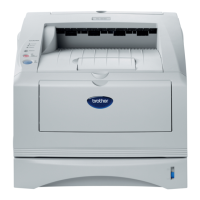
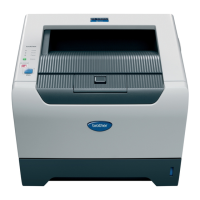
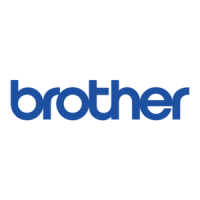
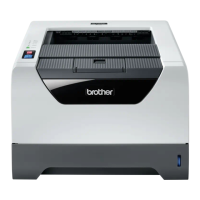
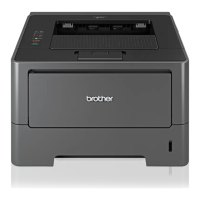
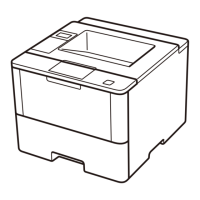
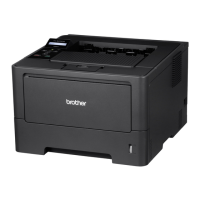
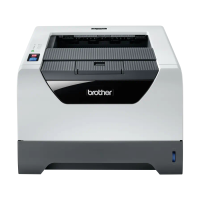
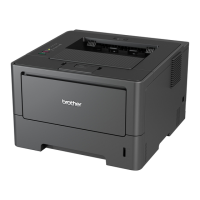
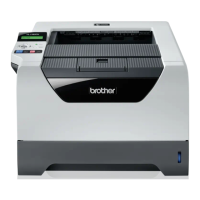
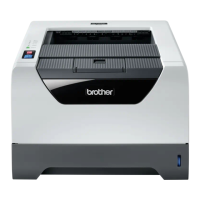
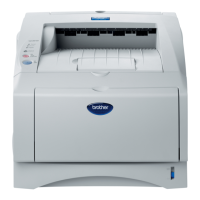
